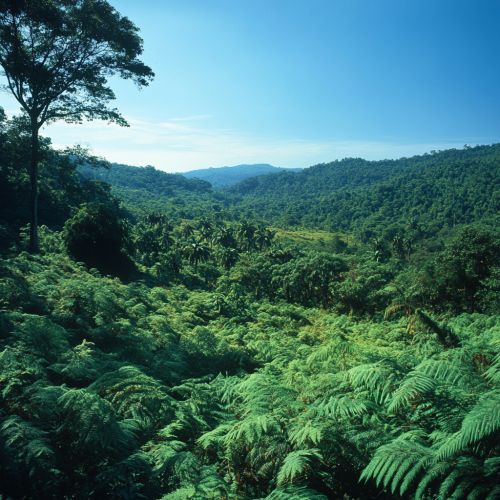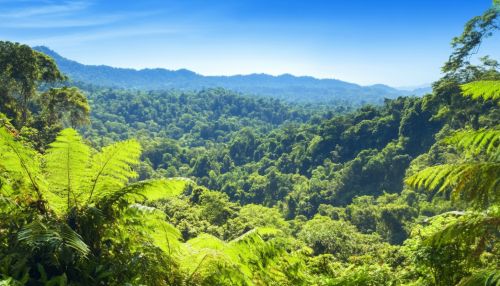School for Environment and Sustainability
Introduction
The School for Environment and Sustainability (SEAS) is an interdisciplinary academic institution dedicated to the study and advancement of environmental science, sustainability, and ecological management. SEAS aims to equip students with the knowledge and skills necessary to address complex environmental challenges through a combination of rigorous academic training, research, and practical experience. The school emphasizes a holistic approach to sustainability, integrating ecological, social, and economic perspectives.
History and Development
The origins of SEAS can be traced back to the increasing awareness of environmental issues in the mid-20th century. As concerns about environmental degradation and resource depletion grew, academic institutions began to recognize the need for specialized education in environmental science. SEAS was established as a response to this demand, evolving from traditional natural resource programs into a comprehensive school focused on sustainability.
Over the decades, SEAS has expanded its curriculum and research initiatives to include emerging fields such as climate change, renewable energy, and biodiversity conservation. The school's development has been marked by collaborations with governmental agencies, non-profit organizations, and industry partners, fostering a dynamic environment for innovation and applied research.
Academic Programs
SEAS offers a diverse array of academic programs designed to cater to various interests and career paths in the environmental sector. These programs include undergraduate, graduate, and doctoral degrees, as well as professional certificates and executive education courses.
Undergraduate Programs
The undergraduate curriculum at SEAS provides a foundational understanding of environmental science and sustainability. Students can pursue majors in areas such as environmental policy, ecology, and sustainable development. The programs emphasize experiential learning, with opportunities for fieldwork, internships, and community engagement.
Graduate Programs
Graduate programs at SEAS are designed for students seeking advanced expertise in specific areas of environmental science and sustainability. Master's degrees are offered in disciplines such as environmental engineering, natural resource management, and environmental health. These programs combine coursework with research projects, allowing students to apply theoretical knowledge to real-world challenges.
Doctoral Programs
SEAS's doctoral programs focus on producing scholars and researchers capable of contributing to the advancement of environmental science and sustainability. Doctoral candidates engage in interdisciplinary research, often collaborating with faculty across various departments. The programs emphasize the development of critical thinking and analytical skills, preparing graduates for careers in academia, research institutions, and policy-making bodies.
Research and Innovation
Research at SEAS is characterized by its interdisciplinary nature and focus on addressing pressing environmental issues. The school's research initiatives are organized into several thematic areas, each exploring different aspects of sustainability and environmental science.
Climate Change and Adaptation
Research in this area examines the impacts of climate change on natural and human systems, as well as strategies for adaptation and mitigation. Projects often involve modeling climate scenarios, assessing vulnerability, and developing policy recommendations to enhance resilience.
Renewable Energy and Technology
SEAS researchers are actively involved in the development and deployment of renewable energy technologies. This includes exploring advancements in solar energy, wind power, and bioenergy, as well as investigating the integration of these technologies into existing energy systems.
Biodiversity and Ecosystem Services
The study of biodiversity and ecosystem services is a key focus at SEAS. Researchers investigate the ecological, economic, and social benefits of biodiversity, as well as the threats posed by habitat loss, pollution, and climate change. Conservation strategies and sustainable management practices are developed to preserve and enhance ecosystem services.
Environmental Justice and Policy
SEAS is committed to addressing issues of environmental justice and equity. Research in this area explores the intersection of environmental policy and social justice, examining how marginalized communities are disproportionately affected by environmental degradation and advocating for inclusive and equitable solutions.


Community Engagement and Partnerships
SEAS actively engages with local and global communities through partnerships and outreach initiatives. The school collaborates with governmental agencies, non-profit organizations, and industry leaders to address environmental challenges and promote sustainable practices.
Local Initiatives
Locally, SEAS works with community groups and local governments to implement sustainability projects, such as urban greening, waste reduction, and water conservation. These initiatives provide students with hands-on experience and foster a sense of civic responsibility.
Global Collaborations
Globally, SEAS participates in international research collaborations and development projects. The school is involved in initiatives aimed at promoting sustainable development in developing countries, addressing issues such as deforestation, water scarcity, and food security.
Future Directions
As environmental challenges continue to evolve, SEAS remains committed to advancing the field of sustainability through education, research, and community engagement. The school aims to expand its academic offerings, enhance its research capabilities, and strengthen its partnerships to address emerging issues such as circular economy and sustainable urbanization.
